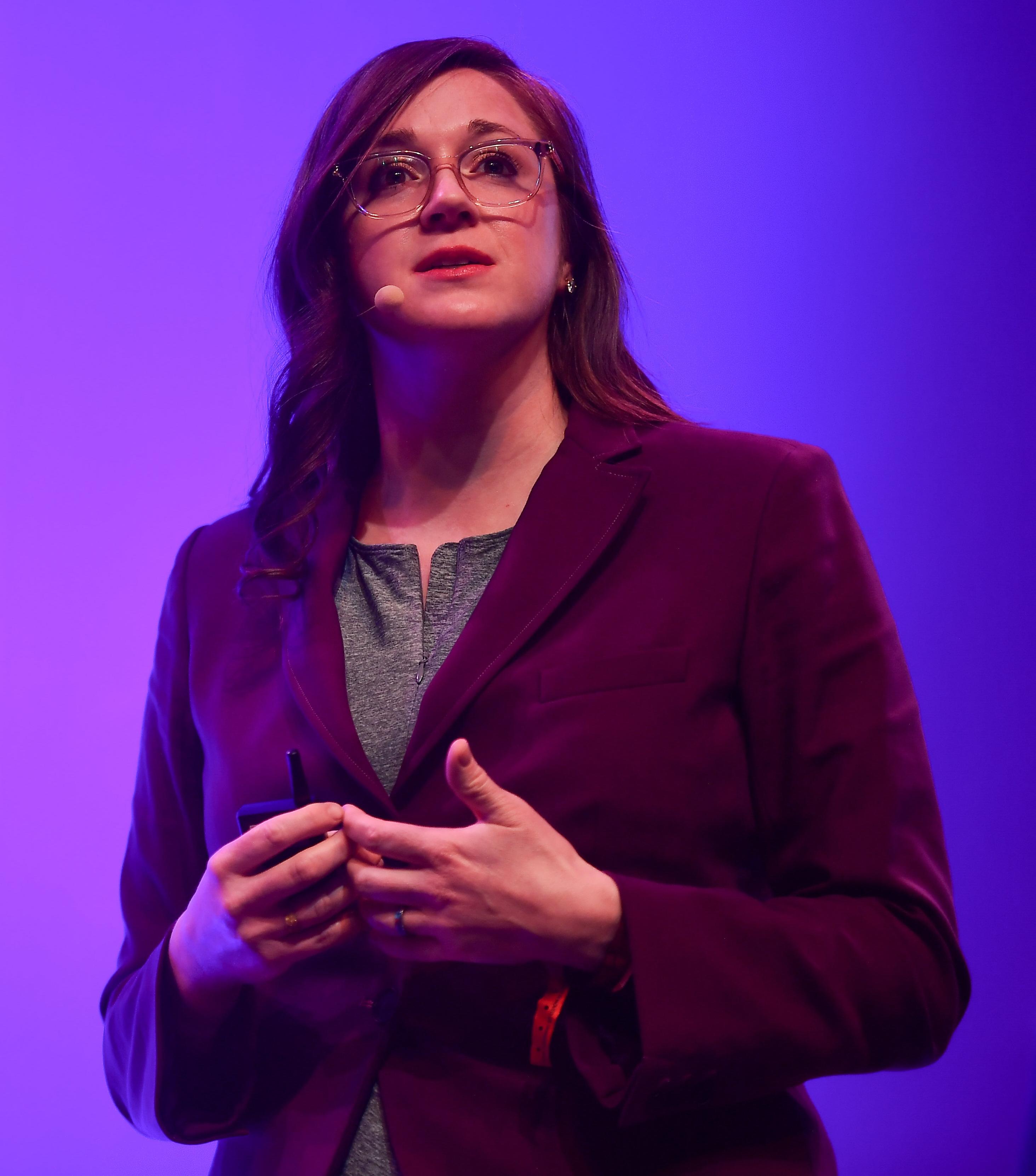The self-driving vehicle industry may be young, just a bit over a decade old, but already a meaningful trend is taking shape: it’s proving to be more open to women CEOs and founders–including women of color–than the broader tech industry and for U.S. companies generally.
With this week’s news that Waabi founder and CEO Raquel Urtasun raised $83.5 million in a Series A round for her Toronto-based startup, three out of 12 leading autonomous technology companies in North America are now led by women. What’s more, in a time when companies across all industries are working to improve diversity, two of the women leading self-driving tech companies, Zoox CEO Aicha Evans and Waymo co-CEO Tekedra Mawakana, are Black.
“I’ve been really excited to see the number of women interested in autonomous technology. There’s an appreciation for what it can do for people, what it’s going to unlock,” says Alisyn Malek, who left General Motors to cofound autonomous shuttle startup May Mobility in 2017 (and is currently executive director of the Washington-based Commission on the Future of Mobility). “The talent pool that AV is able to pull from is broader because we’ve never done it before.”
“The talent pool that AV is able to pull from is broader because we’ve never done it before.”
Women holding approximately a quarter of the top management jobs at autonomous tech companies surpassed the estimated 8.2% of women CEOs at Fortune 500 and S&P 500 companies as of February 2021, according to a study by the Women’s Business Collaborative. The same report also found that less than 1% of CEOs at companies surveyed were women of color.
Among U.S. startups, approximately 40% have at least one woman in a senior management role, though only 14% have a woman CEO, according to Silicon Valley Bank’s 2020 Women in US Technology Leadership survey.
Spanish-born Urtasun, an AI expert and professor of computer science at the University of Toronto, was previously chief scientist for Uber’s self-driving car program until it was acquired by Aurora Innovation in December 2020. Uber, Aurora and Silicon Valley VC Khosla Ventures are all investors in her new company.

Alisyn Malek, cofounder of autonomous shuttle startup May Mobility.
DAVID FITZGERALD/SPORTSFILE VIA GETTY IMAGES
Malek, who’s had extensive experience working with venture capital firms during her time at May Mobility and as GM’s head of Innovation Pipeline, is particularly impressed with Urtasun’s large funding round for Waabi, among the biggest for any autonomous vehicle startup.
“Raquel’s story stands out uniquely because she was able to pitch a new company,” Malek says. “Getting that first round is the hardest. Seeing if she’s able to be successful going forward will be interesting to watch.”
Evans, a veteran Intel executive and engineer who was born in Senegal, was hired as Zoox’s CEO in January 2019 after it fired founder Tim Kentley-Klay in 2018. The company, which is developing a custom-designed robotic taxi, was bought by Amazon in 2020 for $1.2 billion.
Waymo promoted former chief operating officer Mawakana to share CEO duties with its long-time tech chief Dmitri Dolgov in April after John Krafcik left the company that month. Krafcik had initially hired Mawakana, a tech industry veteran and Columbia University-trained lawyer, as Waymo’s global head of policy in 2017.

Carol Reiley, an AI expert who cofounded Drive.ai.
CAROL REILEY
In addition to the three current CEOs and Malek, Carol Reiley was another leading woman in the self-driving industry, an AI expert who cofounded startup Drive.ai in 2015 and serving as its president until 2018. She remained a member of its board until it was acquired by Apple in 2019.
At Motional, a Cambridge, Massachusetts-based autonomous tech company created in 2020 from Hyundai Motor’s joint venture with Aptiv (which previously acquired self-driving startup nuTonomy), Laura Major is chief technology officer.
GM’s Mary Barra, the only woman CEO of a major global automaker, oversaw its acquisition of self-driving startup Cruise Automotive in March 2016. The San Francisco-based GM subsidiary ranks among the world’s best-funded autonomous tech companies, having raised a total of $10 billion from partners including Honda Motor and SoftBank, in addition to GM.
The success women leaders are finding in autonomous vehicles, “is a testimony to the level of innovation those who have been historically overlooked bring to tech,” says Brenda Darden Wilkerson, president and CEO of AnitaB.org, which works to get more women into computing and the tech industry, providing grants and honoring outstanding women in tech with its Abie Awards.
“All of these women have done amazing things in their careers, cut their teeth in leading companies and in research.”
“All of these women have done amazing things in their careers, cut their teeth in leading companies and in research,” says Darden Wilkerson, who was previously director of computer science and IT education for Chicago Public Schools. “They have demonstrated resilience through risk-taking to excel in their careers. And all they have learned by bringing in important skills from their prior foci, (law, research, AI, robotics), together with the honed emotional and business intelligence to take the lead in building a new industry makes perfect sense to me.”
Forbes




